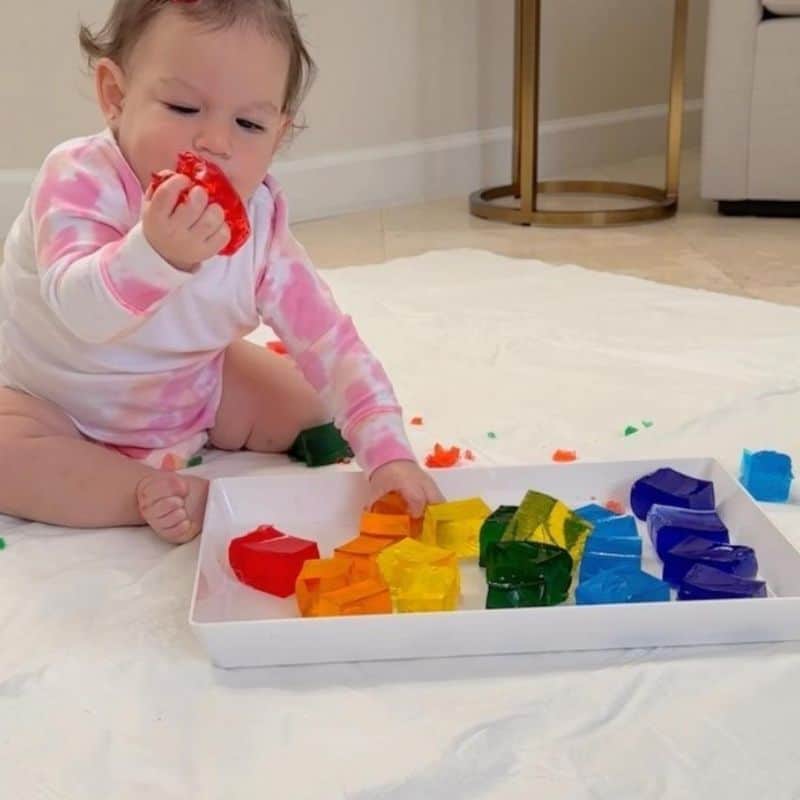Parenting little ones can feel like a rollercoaster ride, full of ups and downs, laughs and tears. For many in the older generation, the challenges faced by today’s parents might seem both familiar and foreign. The world has changed, and so have the methods and philosophies around raising children.
However, one thing remains constant: the need for sanity amidst the chaos. This blog post aims to provide practical tips and insights into maintaining your peace of mind while nurturing young children. With dedication, a bit of humor, and a few strategic approaches, it’s possible to find joy and balance in the parenting journey.
1. Create a Routine

Establishing a routine provides structure, helping both parents and children know what to expect each day. This predictability can reduce stress and create a sense of security. Start by setting consistent meal times and bedtime rituals. Break the day into manageable chunks, with time allocated for play, learning, and rest. Flexibility is key, though. Remember, life with little ones is unpredictable, so be prepared to adapt. A routine isn’t just about rigid schedules; it’s about creating a rhythm that suits your family’s unique needs. Cherish the small victories as you navigate through this organized chaos.
2. Prioritize Self-Care

Self-care is crucial for maintaining sanity. Make time to recharge, whether it’s enjoying a quiet cup of tea or indulging in a hobby. Remember, taking care of yourself isn’t selfish; it’s essential for nurturing others. Set boundaries to carve out personal time, and don’t hesitate to ask for help. Utilize babysitters or family members to give yourself a break. Even small moments of solitude can make a big difference. By prioritizing your well-being, you’ll be better equipped to handle parenting challenges with patience and grace, setting a positive example for your children.
3. Embrace Imperfection

Perfection is unattainable, especially in parenting. Embrace the messiness and unpredictability of raising young children. Not every day will go as planned, and that’s okay. Focus on the joy of the moment, rather than striving for an ideal. Let your children see you handle mistakes with humor and resilience. This teaches them to accept their own flaws and learn from them. Remember, it’s the love and laughter shared, not the perfect picture, that matters most. Celebrate the chaos and see it as a part of the beautiful journey of parenthood.
4. Connect with Other Parents

Building a support network with fellow parents can provide a lifeline of understanding and camaraderie. Share experiences, advice, and encouragement with those who are in the same stage of life. Local parent groups, online forums, or even casual chats at the playground can offer valuable insights and friendship. It’s comforting to know you’re not alone in the challenges and triumphs of parenting. These connections can also provide practical help, such as child swaps for babysitting or organizing playdates. Together, you can navigate the ups and downs of parenting with a little more ease.
5. Simplify Your Life

Simplifying your environment and commitments can significantly reduce stress. Declutter your home, keeping only what is necessary and meaningful. This creates a peaceful atmosphere and makes daily routines smoother. Evaluate your schedule and eliminate non-essential activities to focus on what truly matters. Embrace simplicity in toys and activities, encouraging open-ended play that fosters creativity without overwhelming your child or yourself. By cutting down on unnecessary clutter and commitments, you free up time and energy to enjoy your family. A simpler lifestyle can lead to a more fulfilling and joyful parenting experience.
6. Practice Mindfulness

Mindfulness helps in staying present and appreciating each moment with your children. Start by incorporating short meditation sessions into your daily routine. Focus on your breathing and let go of distractions. Mindful parenting encourages you to listen and respond to your child’s needs with patience and empathy. It’s about being fully engaged in activities, whether it’s reading a story or playing a game. By practicing mindfulness, you can reduce anxiety, cultivate a calm demeanor, and enjoy deeper connections with your little ones. This approach fosters a more peaceful and loving home environment.
7. Set Realistic Expectations

Setting realistic expectations can alleviate frustration for both parents and children. Understand that not every day will be productive or problem-free. Accept that parenting is a learning process for everyone involved. Communicate clear, achievable goals with your children, celebrating small accomplishments along the way. It’s essential to balance aspirations with an understanding of your family’s current dynamics. By setting realistic expectations, you create an environment where both you and your children can thrive without undue pressure. Remember, it’s the journey, not the destination, that truly matters in parenting.
8. Encourage Independent Play

Independent play is vital for a child’s development and your sanity. Encourage your little ones to explore and play on their own, fostering creativity and problem-solving skills. Create a safe, stimulating environment with age-appropriate toys and materials. Gradually increase the time your child spends playing independently, starting with a few minutes and building up. This not only helps children learn self-reliance but also gives you precious moments to relax or focus on other tasks. Remember, it’s okay for children to be bored sometimes; it often sparks their imagination and resourcefulness.
9. Laugh Together

Laughter is a powerful tool for maintaining sanity. It lightens the mood and strengthens family bonds. Make time for fun activities that bring smiles and giggles to everyone. Watch a funny movie, tell jokes, or engage in playful games. Encourage your children to find humor in everyday situations. Laughter can diffuse tension and turn a challenging day around. Don’t take life too seriously; embrace the silliness that comes with parenting. Laughing together not only creates joyful memories but also fosters a positive, loving atmosphere where everyone feels connected and cherished.
10. Limit Screen Time

Limiting screen time helps families stay connected and engaged. Set clear boundaries for when and how technology is used in your home. Encourage outdoor play, board games, and creative activities as alternatives to digital entertainment. Be a role model by demonstrating balanced tech usage yourself. Establishing tech-free zones or times, such as during meals, promotes meaningful conversations and interactions. By reducing screen time, you create more opportunities for connection and exploration. This mindful approach to technology ensures that it enhances rather than detracts from your family’s well-being and togetherness.
11. Foster a Positive Attitude

Maintaining a positive attitude can transform the parenting experience. Focus on the good moments, however small, and express gratitude regularly. Positivity is contagious and can uplift the entire family. Encourage your children to adopt an optimistic outlook by highlighting their strengths and achievements. Use positive language and avoid criticism. By cultivating a supportive environment, you help build your child’s confidence and resilience. Remember, it’s not always about what happens, but how you respond to it. A positive attitude can turn challenges into opportunities for growth and learning.
12. Stay Organized

Organization can bring calm to the chaos of parenting. Use planners, lists, and calendars to keep track of appointments, activities, and chores. Assign roles and responsibilities to family members to share the load. Keep your home organized by designating specific places for everyday items, reducing the time spent looking for things. Staying organized minimizes stress and creates a more efficient household. It allows you to focus on quality time with your children, rather than getting bogged down by clutter and confusion. An organized home supports a peaceful and harmonious family life.
13. Seek Professional Support

Seeking professional support is not a sign of weakness, but a proactive step towards maintaining mental health. Parenting can be overwhelming, and speaking to a therapist or counselor can provide valuable insights and coping strategies. Don’t hesitate to reach out for guidance, whether it’s through individual sessions or support groups. Professional help can offer a fresh perspective and equip you with tools to handle challenges more effectively. Remember, taking care of your mental health benefits your entire family, fostering a healthier and more balanced home environment.
14. Celebrate Small Wins

Celebrating small wins can boost morale and motivation for both parents and children. Recognize and appreciate the everyday successes, no matter how minor they may seem. This could be as simple as a child dressing themselves or mastering a new skill. Create rituals to mark these moments, such as family dinners or special treats. Celebrating achievements reinforces positive behavior and encourages continued effort. It helps children build confidence and understand the value of perseverance. By focusing on the positives, you cultivate a nurturing and joyful family environment where everyone feels valued and motivated.

Well, hello there!
My name is Jennifer. Besides being an orthodontist, I am a mother to 3 playful boys. In this motherhood journey, I can say I will never know everything. That’s why I always strive to read a lot, and that’s why I started writing about all the smithereens I came across so that you can have everything in one place! Enjoy and stay positive; you’ve got this!

